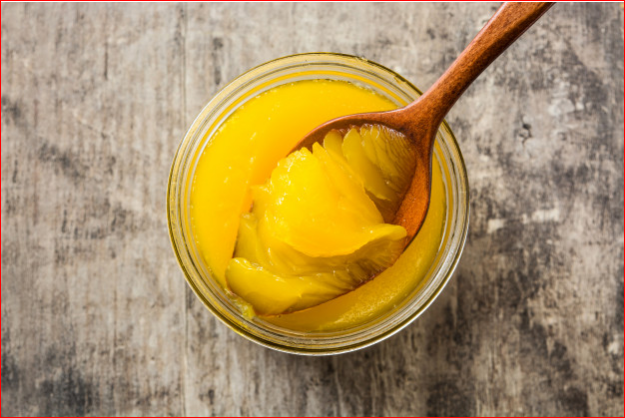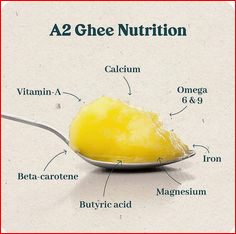
Introduction:
Desi ghee, also known as traditional clarified butter, has been used in Indian cuisine for centuries. Made from cow’s milk, ghee is a staple ingredient in many Pakistani dishes and is believed to have several health benefits. In this article, we will explore these benefits in more detail and examine why ghee is becoming an increasingly popular choice for those looking to improve their overall health.
High Nutrient Content:
Desi ghee is a good source of vitamins A, D, E, and K, as well as conjugated linoleic acid (CLA) and butyrate. Vitamin A is essential for good eyesight and a strong immune system, while vitamins D and K help with bone health. Vitamin E has antioxidant properties and helps protect cells from damage. CLA is a type of healthy fat that is believed to have a range of health benefits, including reducing the risk of heart disease and improving insulin sensitivity. Butyrate is a type of short-chain fatty acid that is believed to help improve gut health and reduce inflammation.
Improves Heart Health:
Some studies have suggested that consuming ghee in moderation may help improve cholesterol levels, which can be beneficial for heart health. High cholesterol levels can lead to the buildup of plaque in the arteries, which can increase the risk of heart disease. By improving cholesterol levels, ghee may help reduce the risk of heart disease and improve overall heart health.
Boosts Immune System:
Ghee is believed to help boost the immune system and promote overall health. This is due to its high levels of antioxidants and anti-inflammatory properties. Antioxidants help protect the body against damage from free radicals, which are unstable molecules that can cause cellular damage. Inflammation is a natural response to injury or infection, but chronic inflammation can contribute to the development of various health conditions, including heart disease and cancer. By reducing inflammation, ghee may help protect against these conditions and promote overall health.
Supports Gut Health:
Ghee is rich in short-chain fatty acids, which can help support gut health and improve digestive function. These fatty acids play a crucial role in maintaining the health of the gut, including promoting the growth of healthy gut bacteria and improving gut permeability. This can lead to improved digestion and reduced symptoms of digestive disorders such as bloating, constipation, and IBS.

Good Source of Energy:
Ghee is also an excellent source of energy, making it a good choice for those looking to add more calories to their diet. However, it is important to note that ghee is also high in saturated fat, so it should be consumed in moderation as part of a balanced diet.
Cooking with Ghee:
Ghee is considered to be a healthy cooking oil. Unlike other oils, ghee has a high smoke point, which means that it can be heated to high temperatures without producing harmful compounds. This makes it an excellent choice for cooking and frying, as it is less likely to produce harmful chemicals that can be harmful to health.
Conclusion:
In conclusion, desi ghee is a traditional Indian ingredient that is believed to have several health benefits. From its high nutrient content to its ability to boost the immune system and promote overall health, ghee is becoming an increasingly popular choice for those looking to improve their overall health. However, it is important to remember that ghee is high in calories and should be consumed in moderation as part of a balanced diet. It is also important to consult with a healthcare provider before incorporating ghee into your diet, especially if you have any underlying health conditions or concerns. By understanding the potential health benefits of ghee and incorporating it into a healthy and balanced diet, individuals can potentially improve their overall health and wellbeing. Overall, ghee is a versatile ingredient with a rich flavor and a variety of potential health benefits, making it a great addition to any kitchen.

